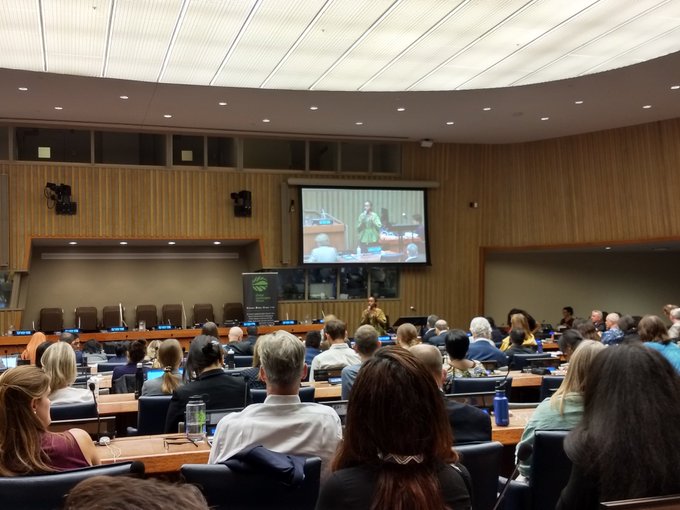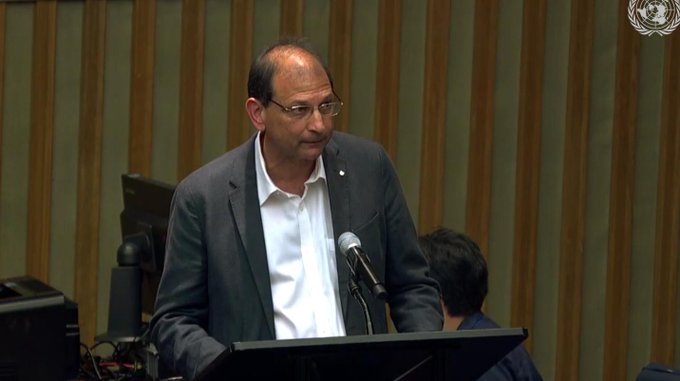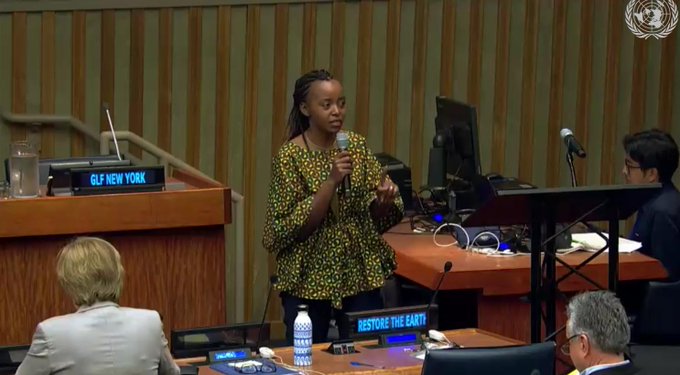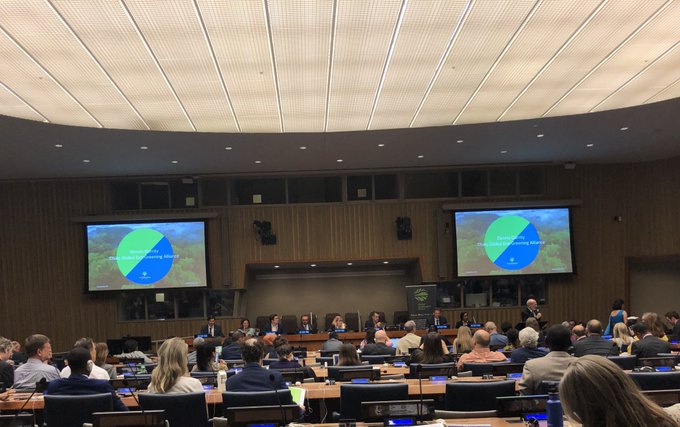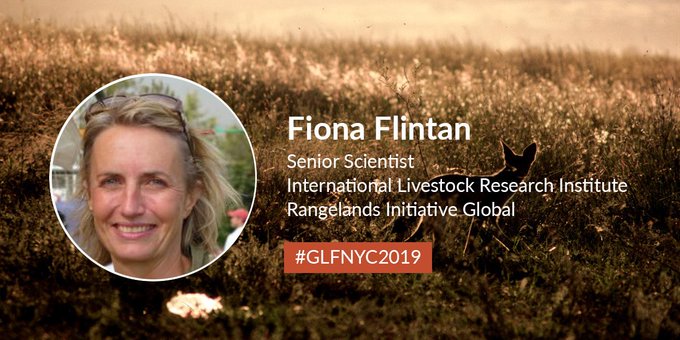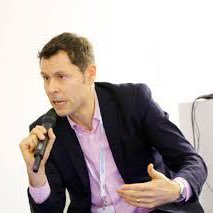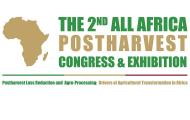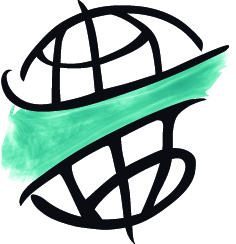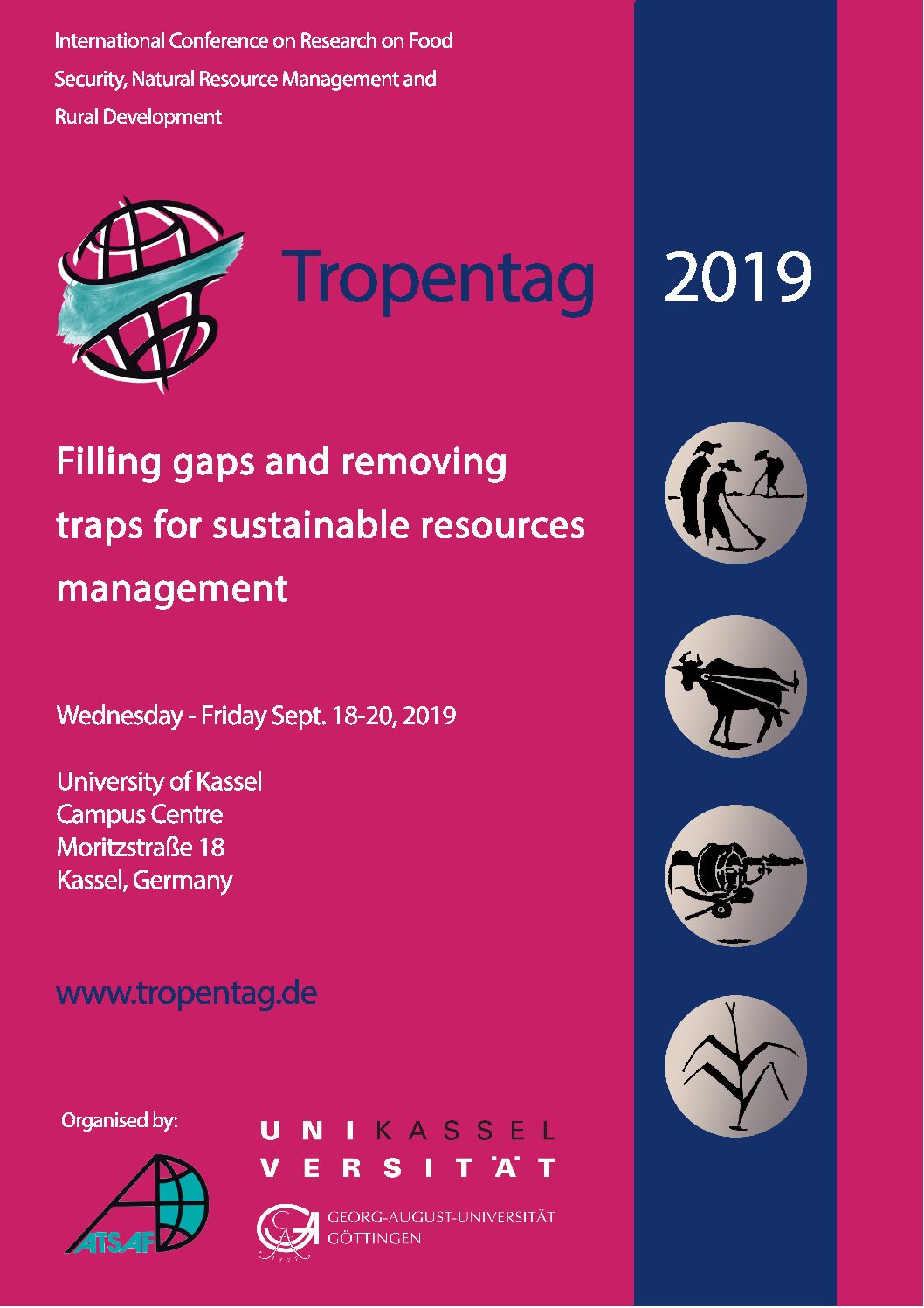A G R I C U L T U R AL
Research
The Private Financing Advisory Network (PFAN) in
partnership with the Kigali Cooling Efficiency Program (K-CEP) seeks projects & businesses offering
energy efficient cooling solutions, to provide them with comprehensive services
which, depending on their needs and maturity, may include business coaching,
investment facilitation, tipping point technical assistance, invitations to
investment forum pitch competitions and participation in investor roadshows.
PFAN’s goal is to
bring projects to investment ready status and then facilitate investor
introductions, providing advisory services for both equity and debt financing.
PFAN has
worked with hundreds of projects around the world; 112 of these have
successfully raised over USD 1.4 billion in investment.
PFAN will select applications not only from businesses in
developing countries that deliver greenhouse gas reductions by moving towards
lower global warming potential (GWP) refrigerants and improving energy
efficiency of air-conditioning and refrigeration, but also from businesses
working with other cooling solutions such as building design, shading, cool
roofs, cold storage, cold chain technologies and super-efficient fans etc.
Global Agriculture and Food Security
Program — Strengthen Agriculture in low-income Countries
GAFSP announces its next
call for proposals in the Public Sector Window for programs and projects that
strengthen agriculture and lessen food insecurity in low-income countries.
GAFSP intends to fund 4-6 proposals for a total of at least US$100 million.
Applications (English and French) are limited to 24 countries in fragile and
conflict-affected situations: Africa, Middle East and North Africa, East Asia
and the Pacific, Eastern Europe, Latin America & the Caribbean, and South
Asia. For the first time, GAFSP is providing technical assistance for proposal
preparation. Application for proposal preparation assistance have to be
submitted by 15 April 2019. The closing date for full applications
is 10
September 2019.
The Global Agriculture and Food Security Program (GAFSP) Steering
Committee is currently accepting proposals for grant funding for new projects
under the Public Sector Window. The GAFSP Steering Committee expects to
allocate a total of US$100 million to the four to seven highest-ranked
proposals. The full announcement is available in English and
French. This Special Call for Proposals is limited to countries
in fragile and conflict-affected situations that are also IDA-only and not in
non-accrual status in an effort to address the underfunding of such countries
to date. Proposals must be submitted electronically by 11:59pm, September 10, 2019
The United Nations Industrial Development Organization (UNIDO) is implementing a Global Environment Facility (GEF) funded project entitled “Reducing Greenhouse Gas Emission in Industrial Sector through Pelletization Technology in Lao PDR” in collaboration with the Ministry of Industry and Commerce and the Ministry of Science and Technology Lao PDR. The goal of the project is to promote the production and usage of industrial grade solid bio-fuel (pellets) for replacing coal and wood.
The project intends to reduce coal and unsustainably harvested fuelwood consumption and promote waste-to-energy methods. The project also aims to contribute to the sustainable energy practices in Lao, to enhance national energy security, to promote job creation and to reduce carbon dioxide emissions as well as avoid deforestation.
The selected bidder will be responsible for designing an efficient and effective system, produce a prototype, demonstrate at site and monitor the results over at least 1 month.
Deadline extended. Interested parties, that satisfy the above requirements, should submit their proposals by 20 September 2019.
Applicants from government institutions, civil society,
communities, indigenous groups and private
sector organizations in Uganda are invited to
submit proposals to the FAO-EU FLEGT Programme.
In 2003, the European Union
adopted the Forest Law Enforcement, Governance and Trade (FLEGT)
Action Plan , whose ultimate goal is to encourage sustainable management of
forests. The FLEGT Action Plan focuses on governance reforms and capacity
building to ensure that timber exported to the European Union (EU) comes only
from legal sources.
The FAO-EU FLEGT Programme is a five-year demand-driven
programme launched in 2015 that supports stakeholders to put elements of the
FLEGT Action Plan into practice. Uganda is one of the eligible country entitled
to benefit from Programme support. The Programme intervention in the country is
governed by a nationally-developed theory of change.
The priority areas for this Call for
Proposals are taken from the nationally-developed theory of change
(pre-requisites) and were approved in June 2019 by the Uganda Technical
Committee, composed of members from the Uganda Ministry
of Water and Environment (Forestry Sector Support
Department and National Forestry Authority), European Union Delegation and FAO.
This call for proposals will address those priorities. Deadline:
13 October 2019
The CFC calls for proposals that
advance commodity development in its member countries. Funding is targeted
mainly to for-profit organizations and social enterprises for production, value
chains, and marketing across a wide group of commodities (agricultural crops,
tree crops, timber, bamboo and rattan, minerals, and others). This 15th call
for proposals has a deadline on 15 October 2019.
Agribusiness
The Work4Progress challenge seeks
projects that generate new employment opportunities for women and young adults
in India, Mozambique and Peru. Projects should focus on technologies to promote
entrepreneurship among young women (India), agri-technologies to improve crops
(Mozambique), agri-technologies to improve irrigation (Peru). Universities,
companies, and non-profit organisations are eligible to apply. The deadline to
submit a solution application is 02 September
2019.
The Business Partnership Facility
awards subsidies to support and develop private sector involvement in
Sustainable Development Goals (SDGs) in developing countries. The projects
submitted under this call must contribute to achieving at least one clearly
identified SDG. Funding of up to €200 thousand is available. Partnerships must
comprise of actors from the private sector, civil society, academia and/or the
public sector, with least one organisation from the for-profit private sector.
The application deadline is 09 September 2019.
The program VALUE4HER seeks to increase
incomes and employment for women in agribusinesses. This grant scheme is aimed
at enabling women’s agribusinesses to try out new ideas and to spur innovations
within women-owned agri-businesses. The maximum available grant per
agribusiness is €9 thousand. The grant covers up to a maximum of 90% of the
total project budget. The applicant has to contribute the remaining 10% either
in cash or in-kind. Eligibility extends to African woman-led agribusinesses.
Deadline for receipt of applications is 15
September 2019.
The Invest2Impact Competition seeks to support 100 women-led businesses
in East Africa with funding, mentoring and networking opportunities. The
competition will award US$20 thousand to a business that is working to address
climate change and promote a green economy, among three other categories. The
competition is open to women entrepreneurs and small and medium-size women-led
businesses from Ethiopia, Kenya, Rwanda, Tanzania, Uganda. Applications
have to be submitted by 20 September 2019.
The Regional Universities Forum for
Capacity Building in Agriculture (RUFORUM) sponsors a competition for young
African entrepreneurs (< 35 years) to showcase their business innovations in
agribusiness. Although the focus of the competition is agribusiness, business
innovations in other themes (e.g., natural resources, meteorology,
urbanization, green economy, etc.) will also be considered. Competition will
provide seed funding to young entrepreneurs with creative and innovative
business ideas. The competition is open to applicants from Benin, Burkina Faso,
Cabo Verde, Côte d’Ivoire, Gambia, Ghana, Guinea, Guinea-Bissau, Liberia, Mali,
Niger, Nigeria, Senegal, Sierra Leone, and Togo. Submissions are invited in
English or French before 30 September 2019.
BBSRC seeks collaborative research
projects involving collaborative research with at least one company and one
research-base partner through the ‘Stand-alone’ LINK scheme. Case Studies from
the LINKS scheme include the themes of agriculture, sustainable energy and
climate change. Applicants from industry and academia can request a
maximum of £1 million per project. Projects must be based in the UK, however,
where a suitable company cannot be found in the UK, an overseas company may be
used. Applications must be submitted by 02 October
2019.
Dining for Women makes
grants to non-profit organizations that support women and girls living in
extreme poverty in developing countries. Thematic areas include access to clean
water and sanitation, food security, and education, among other themes.
Applicants may request between US$35 thousand to US$50 thousand. Eligibility
extends to US 5.01(c)3 corporations or international organisations with a
fiscal sponsor which is a US 5.01(c)3 corporation. Dining for Women has two
annual grant cycles. The submission deadlines for 2019 are 24 April
and 24 October
2019.
The Rescued Tools
Foundation (Stichting Gered Gereedschap) collects and refurbishes discarded
tools and small items of equipment in the Netherlands for the benefit of
recipients in Sub-Saharan Africa. The priority countries are Uganda,
Malawi, Tanzania and Ghana. The Foundation favors projects that offer
opportunities for women, marginalized groups, co-operatives, and ecological
awareness and environmental protection. Organizations that meet the
Foundation’s criteria for assistance can fill out an application form.
Misereor is the
international development agency of the Catholic Church in Germany. Its mission
is to fight hunger, disease, poverty, and other forms of human suffering in
Asia, Africa, and Latin America. Issues and themes include climate change and
justice; food security and agriculture; access to land; energy for the poor;
and extractive industries. Misereor posts guidelines in multiple languages
regarding how to request funding support. Applications can be sent at
any time.
Bio-diversity, Environment, Climate change
Collaborate Pacific aims to support effective governance,
leadership, regional cooperation, and sustainable development in the
Pacific. The fund supports small scale activities in the thematic priority
areas: Agriculture, Climate Change, Oceans and Fisheries, Renewable Energy, and
many other development priorities. Funding can cover travel (including
transport, accommodation, and meals) and event costs (including hosting costs).
Pacific Island citizens, NGOs, government agencies, and civil society are
encouraged to apply. Applications are accepted on a rolling basis.
The Development Related Infrastructure Investment Vehicle (DRIVE) is a
program of Dutch support for infrastructural projects in the areas of water;
climate; food security; and sexual and reproductive health and rights. The
program offers funding support to entrepreneurs worldwide for construction
projects in the eligible DRIVE subject areas and countries. Funding ranges from
€5 million to €60 million. Applications are accepted and reviewed on a
continuous basis.
The European Commission seeks to
support sustainable agricultural development and contribute to the improvement
of the food security and the resilience to climatic hazards of rural households
in Madagascar. Any grant application under this call must fall between the
minimum and maximum amounts of €700 thousand and €3.28 million. Eligibility
extends to non-profit organizations established in the European Union, or in
one of the African, Caribbean and Pacific (ACP) States, or in one of the least
developed countries. Deadline for submission of concept notes is 11 September 2019.
The International Fund for Agricultural Development (IFAD)
seeks to increase smallholder farmer productivity and income through access to
improved seeds and improved PPP in Central Africa. IFAD will provide a
three-year grant for the total amount of up to US$3 million. The project is
expected to enhance reliable access of smallholder farmers to quality cassava
planting material and maize seed of at affordable prices. The deadline for
submitting applications is 18 September 2019.
The Hilden Charitable Trust makes grants in the UK and
developing countries in defined thematic areas. Projects in developing
countries focus on community development, education, and health. (Note:
Projects related to food security, community water supply, local energy, etc.,
may be relevant.) HiIden particularly welcomes projects addressing the needs
and potential of girls and women. Hilden will consider funding for charitable
organizations based in any developing country, that have been active for at least
five years, and that meet its criteria on financial income. Hilden only accepts
applications from UK charities for overseas projects. Projects may be for more
than one year. Average grants are £5 thousand. Applications can be submitted
anytime but the closing date for the next meeting is 19 September 2019.
UNU-WIDER (World Institute for
Development Economics Research) invites applications for its PhD research
internships program in Helsinki, Finland. Preference is for applicants who live
or work in developing countries, and who are in the later stages of their PhD.
Program themes in WIDER include the economics of energy, climate change, food
security, and others. UNU-WIDER provides a travel grant and a monthly stipend
of €1,600 during the period of the fellowship. The application deadlines are 31
March and 30 September each year.
In partnership with Microsoft, the
National Geographic Society seeks proposals from around the world that focus on
the use of artificial intelligence and machine learning to better monitor and
manage Earth’s natural systems for a more sustainable future. The grants will
support the creation and deployment of open source trained models and
algorithms in the focus core areas of climate change, agriculture, and water.
Proposals may request US$5 thousand to US$100 thousand. The deadline for this
RFP is 09 October 2019.
BBSRC accepts applications for strategic training awards of up to 12
months in duration to support research capability addressing current global
challenges. The purpose of this call is to build a portfolio of sustainable
training resources in research priority areas, focusing on sustainable
development in developing countries. Focus areas include sustainable energy;
clean air, water and sanitation; resilience to long-term environmental change;
sustainable marine resources and agriculture, among others. A total of up to
£500 thousand is available to support the training activities. GCRF-STARS
applications should be co-created and delivered through training partnerships
between the UK partner and organisations from developing countries.
Applications must be submitted by 16 October
2019.
The First Solar Corporate
Charitable Fund seeks to improve the quality of life in communities around the
world. Priority areas are “green” education; access to clean energy and water
in underserved areas; and the development of innovative and sustainable
technologies. In support of these objectives, the Fund donates solar modules
and systems. Applications may also include a request for a grant (US$10
thousand to US$15 thousand) to help with project support. The next deadlines
for proposals are 01 May, 01 August and 01 November.
UN Women offers free online courses
across many subject areas through the global online platform for training for
gender equality. Courses include the ‘2030 Agenda for Sustainable
Development and Gender Equality’ which is directed to government
representatives and public servants, officials from the UN System and other
international organizations, Civil Society Organizations representatives,
academics and general public. Many of the courses are free to take part.
Deadline for the Sustainable Development and Gender Equality course is 31 December 2019.
Fellowships/scholarships/grants
Living Lakes is a global network of partnership
organizations to protect lakes, wetlands, and other freshwater sources and
their catchment areas. The network takes an ecosystems approach to include
biodiversity conservation and support for local livelihoods, e.g., in
agriculture, fisheries, tourism, etc. Living Lakes does not make project
grants, but it offers network assistance to members. Members are able to
include their projects and proposals in the Living Lakes portfolio for the
attention of potential donors and sponsors. Members may also apply for
assistance to participate in the meetings, workshops, and conferences of Living
Lakes — and to seek other forms of networking and training support. Applications
can be submitted at any time.
RUFORUM’s program for Graduate Training
Assistantships (GTA) grants support for 325 PhD training opportunities during
the next four years. The GTA aims to improve the quality of higher education
and increase the pool of PhD academic staff in RUFORUM’s member universities by
facilitating cross-university PhD studies and teaching. Applicants need to be
nominated for PhD training by his/her university. RUFORUM Secretariat assists
in facilitating placement of the nominated staff to universities with the appropriate
fields of the required training. The GTA accepts rolling applications (no
deadline).
The International Foundation makes grants
in subject areas that include agriculture, water and sanitation, environment,
and several others. Grants are to nonprofit tax-exempt charitable organizations
in the USA. Most grant recipients are small and medium NGOs in the USA engaged
in international development assistance. Grants are up to US$25 thousand for
projects of one year. There are no calendar deadlines for applications.
The Foundation Fiat Panis supports
master and doctoral theses during their fieldwork. The main objective of this
grant is to promote research projects which are likely to contribute to an
improvement in the nutritional situation of people in developing countries.
Applications for research support can be submitted by professors, directors,
and doctoral supervisors. This program is ongoing and informal. There
is no formal calendar deadline.
The Nippon Foundation makes its
overseas grants to nonprofit organizations based outside of Japan. This refers
to local, regional, and international NGOs and other nonprofit organizations,
including educational and research institutions. Past projects and
education/training include examples in small-scale agriculture and natural
resources. There is no minimum or maximum grant size. There is no
application deadline.
Esri is an international supplier of Geographic Information
System (GIS) software, web GIS, and geodatabase management applications. Esri
offers free or discounted GIS software, hardware, data, training, and services
to support groups and individuals working for social and environmental benefit.
Esri’s Conservation Grant Program makes GIS grants to non-profit organizations,
programs, and individuals active in public service and nature conservation in
any country. There are no grant cycles or deadlines.
Are you a scientist or engineer? Do
you want to learn first-hand about policymaking? To contribute your knowledge
and analytical skills for better government services? Then apply now for
AAAS Science & Technology Policy Fellowships!
Science & Technology Policy
Fellows serve yearlong assignments in the federal government and represent a
broad range of backgrounds, disciplines, and career stages.
Specific to
international development, there are multiple Science & Technology
Policy Fellows serving in USAID to support digital development programs.
USAID Fellows can also stay on as Fellows for an additional two more years.
With a
proposed budget of 100 billion euro from 2021 to 2027, the Horizon Europe
framework programme represents the largest collaborative multinational research
and innovation investment in Europe and is open to participants worldwide.
The
European Parliament and the Council, the co-legislators have provisionally
agreed on the Horizon Europe legislative package. Based on the agreement, a
Strategic Plan will put forward the targeted impacts for the investment in
research and innovation and the priorities for the first four years of
implementation of Horizon Europe.
We invite
you to contribute to co-designing and help shaping the future research and
innovation investment by responding to this questionnaire. It takes
approximately 20 minutes to respond. The results will inform the work on the
first Strategic Plan of Horizon Europe. You can further engage by
participating in the European Research and Innovation Days on 24-25-26
September 2019 in Brussels.
It is recommended that prior to responding to the questions,
you read the attached document: Orientations towards the first
Strategic Plan implementing the research and innovation framework programme
Horizon Europe.
The DAAD offers scholarships to
qualified individuals from eligible developing countries for post-graduate
studies at German universities in development-related subjects. The program
(EPOS) is open to individuals who completed their previous academic degrees no
longer than six years previously; who have at least two years of professional
experience; and who are nationals of countries receiving official development
assistance (DAC list of the OECD). The available courses range across water
resources; renewable energy; land management and tenure; agricultural sciences;
forest sciences; ecology; nature conservation; environmental governance; and
many others. Most scholarship deadlines for the 2020-2021 intake fall
between August 2019 through December 2019,
varying by courses (check carefully).
The flagship Master in Food
Systems programme is EIT Food's unique offering to develop top talent for the
food sector. The programme is based on a combination of essential skills to
become effective innovators and entrepreneurs in the food sector along with key
technical skills that are tailored to the individual career pathway for each
student. The approach of the programme is unique in how students can select
study pathways from a wide range of profiles at different European Universities
to suit their career ambitions. The programme will start in September 2019.
The Netherlands Organization for
Cooperation in Higher Education (NUFFIC) calls for joint proposals for Orange
Knowledge institutional collaboration projects. The program aims to strengthen
professionals and organisations from developing countries through education and
training. The maximum available funding for this call falls between the
amounts of €1.1 million and €2.2 million. Programs include subjects in
food security and water resource management. Application deadlines vary by
country (please check carefully), with remaining deadlines in July and September 2019.
The Nordic
Climate Facility (NCF) is a challenge fund set up in 2009 to finance early
stage climate change projects in developing countries. NCF aims to build a
portfolio of innovative business concepts which have been tested, proved viable
and are ready to be scaled-up and replicated.
NCF is financed and managed by the Nordic Development Fund
(NDF). The first four calls for proposals of NCF were administered by NEFCO. We are currently
accepting applications. Apply before 5 September 2019.
The Australian Aid: Friendship Grants program supports organisations
from across Australia and provides funding for aid activities in the
Indo-Pacific. Eligible Australian community organisations are encouraged to
apply for funding of AU$30 thousand to AU$60 thousand in three annual grant
rounds. The program funds development activities that strengthen an overseas
community’s capacity or socio-economic situation and improve the lives of poor
and vulnerable people. Past winners include projects in rural agriculture and
forestry, as well as various humanitarian issues. The deadline for project
submission is 10 September 2019.
In Europe’s research program Horizon
2020, the Marie Skłodowska-Curie Individual Fellowships provide opportunities
to acquire and transfer new knowledge and to work on research in a European
context or outside Europe. The scheme particularly supports the return and
re-integration of researchers from outside Europe who have previously worked
there. It also develops or helps to re-start the careers of individual
researchers that show great potential, considering their experience. Applicants
in the EU; their overseas territories; countries associated to Horizon 2020; and
most developing countries are eligible for consideration. The closing date for
applications is 11 September 2019.
The University of Essex
invites applications from African students who self fund their postgraduate
studies. The university offers a scholarship of £4 thousand to African students
that will be paid as a discount on the tuition fee. Available courses include
biological sciences, marine biology, and biochemistry, among many others.
Applicants that meet all the eligibility criteria and firmly accept the offer
of their place by 13 September 2019 will automatically be awarded this scholarship (please read
the instructions carefully).
The Fulbright Scholar
Program invites applications from U.S. scholars for research, teaching, and
creative arts in an international context. Eligibility criteria include U.S.
citizenship and a PhD or equivalent professional degree. The available openings
include several in the developing world in subjects related to agriculture,
environmental and biological sciences, geography, and others. The deadline for
applications is 16
September 2019.
BBSRC and the Natural Environment
Research Council (NERC) announce a joint call to address challenges related to
the sustainable enhancement of agriculture (including crops and livestock) and
aquaculture (including finfish and shellfish) in low- and middle-income
countries in Sub-Saharan Africa, Southern Asia and South-Eastern Asia regions.
BBSRC and NERC have allocated a maximum of up to £3.4 million, to fund
multidisciplinary research projects of up to 24 months in duration. Proposals
must be led by a principal investigator in the UK. The application deadline
is 18 September 2019.
The Hilden Charitable Trust makes grants in the UK and
developing countries in defined thematic areas. Projects in developing
countries focus on community development, education, and health. (Note: Projects
related to food security, community water supply, local energy, etc., may be
relevant.) HiIden particularly welcomes projects addressing the needs and
potential of girls and women. Hilden will consider funding for charitable
organizations based in any developing country, that have been active for at
least five years, and that meet its criteria on financial income. Hilden only
accepts applications from UK charities for overseas projects. Projects may be
for more than one year. Average grants are £5 thousand. Applications can be
submitted anytime but the closing date for the next meeting is 19 September 2019.
CLIFF-GRADS is a joint initiative of the CGIAR Research
Program on Climate Change (CCAFS) low emissions agriculture flagship and the
Global Research Alliance on Agricultural Greenhouse Gases (GRA). The program aims
to build the capability of early career agricultural students in developing
countries to conduct applied research on climate change mitigation in
agriculture. CLIFF invites applications from PhD students from developing
countries for short-term (4-6 month) scientific training and research stays at
CGIAR research centers or affiliated research institutions. The focus of the
research is greenhouse gas emissions and carbon sequestration associated with
climate change mitigation in agriculture in developing countries. Grants are
between US$10 and US$12 thousand. The deadline for applications is 30 September 2019.
IDEX invites applications worldwide for its Fellowship
Program 2020. The Fellowships build the capacity of young professionals for
social enterprise in areas such as agriculture, education, clean energy,
sanitation, healthcare, livelihoods, and impact investing. The program provides
six months of leadership training in enterprise development, including field placements
at social enterprises in India. Candidates should be 21 to 35 years old, with a
minimum of one to three years of professional work experience. IDEX offers a
limited number of full and partial scholarships to select candidates. The
application deadline is 30 September 2019.
Online Turf offers £500 for
full time education of an agricultural or horticultural subject field.
Eligibility extends to students enrolled full time in an agricultural or
horticultural course in university or college. The scholarship is not
restricted to any nationality, but applicants must study and reside in the U.K.
The submission deadline is 30 September 2019.
The Global Foodtech Accelerator 2019 is
open for applications. The Program seeks 10 startups with innovative solutions
and international partners to improve agrifood and retail sectors. Selected
projects will receive an economic contribution of €20 thousand, office space,
mentorship and networking opportunities. Eligibility extends to Italian and
foreign companies and individuals. The application deadline is 30 September 2019.
The Women for Africa Foundation has
launched the 5th Edition of its “Science by Women” program. The program aims to
promote African women’s leadership in scientific research and technology
transfer, and to foster the capacity of the research centres in their home
countries. Thematic areas include agriculture and food security; water; energy
and climate change; and several others. Each of ten Spanish Centres of
Excellence will host one senior woman researcher for a six-month fellowship.
Eligibility to apply extends to women who are nationals of any African country,
and who have a PhD, with at least three years of post-doctoral experience. The
application deadline is 30 September 2019.
The New Voices Fellowship is a year-long program that
provides intensive media and advocacy training for top development
professionals in the developing world. The Aspen Institute aims to select 25
Fellows who will write opinion articles, participate in interviews with local
and international media, and speak at international conferences. Subject areas
of interest include food security, climate change, and other themes.
Applications are welcome from all developing countries. The program provides
funds to participate in media-related activities and conferences. We could
not find an official deadline for applications. Application deadlines for past
calls have been scheduled around mid-October.
The Netherlands Enterprise Agency, the
SDG Partnership facility (SDGP), and the Ministry of Foreign Affairs aim to
help achieve the following sustainable development goals in developing
countries. Focus areas under this call include promoting economic growth in the
agricultural and fisheries sector through sustainable and climate-resilient
food production systems, among others. Applicants can apply for a subsidy of min.
€500 thousand and max. €3 million per project. The main applicant has to be a
Dutch organization but local partnerships with NGOs, companies, or government
agencies are required to be eligible. The deadline for concept notes is 01 October 2019.
The Hubert H. Humphrey
Fellowship Program supports non-degree academic study and related professional experiences
in the U.S. for experienced professionals from countries that are undergoing
development or political transition. Fellows are hosted at universities in the
USA. Program fields include agriculture and rural development; natural
resources, environmental policy, and climate change; and many others.
Applications are made through the U.S. Embassies or Binational Fulbright
Commissions in eligible countries, with varying deadlines. The embassies and
commissions submit their nominations before 01 October to the Institute of International Education office in Washington,
DC.
Grinnell College invites nominations
for the 2020 Grinnell Prize. The Grinnell Prize of US$100 thousand will be
awarded to individuals who show creativity, commitment, and extraordinary
accomplishment in effecting positive social change. Past nominations have
spanned a diversity of social issues related to agriculture and hunger relief,
conservation and environment, and many other thematic areas. Nominees may be
nationals of any country who have earned a bachelor’s degree (or equivalent)
between 2003 and 2019. The closing date for nominations is 07 October 2019.
The Mo Ibrahim Foundation financially supports the Ibrahim Leadership
Fellowship position in the African Development Bank. The Fellowship allows
talented individuals to increase and enhance their professional capacity, with
the intention of contributing to the governance and development of their
countries. The priority for the 2020 selection of the Mo Ibrahim Fellow
includes energy (“lighting up and powering Africa”); agriculture (“feeding
Africa”); and others. The Fellowship is for young professionals, mid-career,
and/or new executives who are nationals of an African country, residing
anywhere in the world. The application deadline is 14
October 2019.
GlobalGiving is an online platform to
raise funds for grassroots projects worldwide across many sectors and themes –
including in agriculture, energy, environment, and natural resources.
GlobalGiving announces a new Accelerator program that will offer virtual
training in online fundraising and participation in a two-week crowdfunding
campaign. The program is open to nonprofit organizations anywhere in the world.
Organizations that successfully complete the GlobalGiving Accelerator by
raising at least US$5 thousand total from a minimum 40 different donors will
earn permanent membership with GlobalGiving, in addition to publicity and bonus
prizes. The next application deadline is 18
October 2019.
The Earth Institute at Columbia
University invites applications for 2-year postdoctoral fellowships that contribute
to understanding critical scientific and social issues in global sustainable
development. Specific areas of research include food security, energy systems,
climate change, poverty reduction, disease, and environmental degradation. The
multi-disciplinary program is open to U.S. and non-U.S. citizens who received
their doctoral degrees within five years of beginning their appointments. The
deadline for applications is 30 October 2019.
The Swiss Government Excellence
Scholarships aim to promote international exchange and research cooperation
between Switzerland and over 180 other countries. Thematic areas for
post-graduate scientific research include Agriculture, Biodiversity and
Sustainability, and Poverty Reduction, among others. Eligibility extends to
young researchers from all around the world who have completed a master’s
degree or PhD. Application deadlines vary by country (please check carefully).
Prepare your application by 01 November 2019.
The Catholic Relief Services (CRS)
invites individuals dedicated to a career in international development to
submit an application. Fellows receive training and support CRS’ work in
various sectors such as agriculture/livelihoods, health, water and sanitation,
emergency response, or micro-financing. CRS offers 20-30 fellowships each year.
Each fellow is placed in one of CRS’ overseas country programs for a 12-month
fellowship. The application will be open through 01
November 2019.
ETH Zurich makes competitive grants in
two programs sponsored by its World Food System Center. They are: (i)
Sustainability in Food Value Chains (Cooperative Research Program); and (ii)
Organic Production Systems for Food Security (Mercator Research Program).
Principal Investigators must be current members of the World Food System
Center. Co-applicants can be from other research institutions in Switzerland or
other countries. The deadline for proposals is 01
November 2019.
The Chevening Scholarships provide full or partial funding
for full-time courses at postgraduate level, normally a one-year master’s
degree, in any subject at any UK university. Chevening Scholars come from 150
countries, excluding the USA and the EU. Applicants complete the application
forms for their chosen universities. The available courses include subjects
such as agriculture, conservation, climate change, and others. The current
application closes 05 November 2019.
The Scottish Government’s International Development Small
Grants Programme provides project funding in support of the government’s
International Development Policy. Applications for grants are invited from
incorporated not-for-profit organisations which have a presence in Scotland and
an annual turnover of less than £250 thousand. Project grants should focus on
any of Malawi, Rwanda, or Zambia in themes of food security; renewable energy;
climate change; water; and others. Grants for capacity building and feasibility
studies will be accepted in relation to any country designated as medium/low on
the UN’s Human Development Index — but with priority for Malawi, Rwanda, and
Zambia. Awards are a maximum of £15 thousand for one-year feasibility studies
and capacity building initiatives. The application deadline is 08 November 2019.
UK Aid Match supports collaborations between charities, the
British public and the UK government. UK Aid Match welcomes applications for
funding from charities and non-profit organisations in support of projects
aimed at the poorest people in developing countries. For every £1 donated to a
UK Aid Match charity appeal, the UK government will provide equal match
funding, up to £2 million. Only UK based charities are eligible to apply but
projects have to be implemented in low-income development countries. The
deadline for submissions is 12 November 2019.
The RGS-IBG makes grants for
geographical research, fieldwork, and teaching that include several awards with
deadlines in November. The application deadline is 10 November for the Journey
of a Lifetime Award. The deadline is 23 November for the Ralph Brown Expedition
Award; Thesiger-Oman International Research Fellowships; Walters Kundert
Fellowship; Dudley Stamp Memorial Award; Rob Potter Award; Postgraduate
Research Awards; and Geographical Club Award. The deadline is 30 November for the Neville Shulman Challenge
Award.
DAAD co-fund research grants for
qualified applicants from Brazil. The aim of the programme is to s to promote
research projects within the context of doctoral studies. The programme accepts
doctoral candidates at universities in Brazil, who have been awarded a domestic
scholarship from CAPES (Co-funder). Subject areas include natural sciences and
agriculture. The domestic doctoral scholarships will be paid by CAPES during
the research stay in Germany, and DAAD will co-fund a monthly payment of €650,
health, accident and personal liability insurance cover, and travel allowance.
The application deadline is 02 December 2019.
Mobility grants allow
researchers and students to build personal contacts and relationships for
collaborations between institutions. Mobility grants can be awarded to young
scientists who hold a Bachelor or Master’s degree and with not more than 6
years of professional research experience. Activities may include field work
and/or an internship in relation to the applicant’s research project. The call
is open for activities in all scientific disciplines and fields of research.
Priority countries under this call are: Egypt, Lebanon, Morocco,
Palestine, Qatar, Tunisia and the United Arab Emirates. Mobility visit
should have a minimum duration of 4 weeks and not exceed CHF 5 thousand. Applications
will be accepted until 31 December 2019.
Right Sharing of World Resources (RSWR)
makes seed grants to support income-generating projects led by women. RSWR’s
current priorities are grassroots organizations selected states and districts
of India; Quaker groups in Kenya and Sierra Leone. Projects include many in the
production and sale of fruits and vegetables; meat and milk; grain crops; fish;
fuelwood; and other enterprises associated with small-scale agriculture and
rural livelihoods. RSWR provides micro-credits of up to US$5,500 for one year
projects. The next application deadline is 31
December 2019.
The Nestlé Foundation supports research
in human nutrition in low-income and lower middle-income countries. In relation
to agriculture, the Foundation will consider research on food policy, food
production, and food technology if the intervention has high potential for
improved nutritional status and public health. The Foundation offers training
grants, pilot grants, and full project grants. Priority is for proposals
submitted by researchers in developing countries, or jointly with partners in
developed countries. A Letter of Intent (LOI) can be submitted at any time of
the year. The deadlines for full grant applications are 10 January and 10 May 2020.
Humboldt Foundation is seeking applications from Young Climate
Experts for its International Climate Protection Fellowship.
With
the International Climate Protection Fellowships, the Alexander von Humboldt
Foundation enables prospective leaders in academia and industry to implement a
research based proposal in the field of climate protection or climate-related
resource conservation during a one-year stay in Germany.
Up to 20
International Climate Protection Fellowships are granted annually, funded under
the German Federal Ministry for the Environment, Nature Conservation and
Nuclear Safety’s (BMU) International Climate Initiative. The fellowships target
prospective leaders from non European transition and developing countries. Deadline:
1 March 2020
The MAN Impact Accelerator seeks social entrepreneurs from
Europe, South Africa, and Brazil to tackle social and environmental challenges
through innovative solutions in the transport and logistics industry. Social
businesses and startups in the key areas agriculture, data analytics (including
environmental data), sensors, among others, are invited to apply. The program
provides indirect grants and support of up to US$50 thousand (no equity or
cash) for each startup. This also includes free access to coaches and mentors
as well as to software and data perks. The application deadline is 01 October 2020.
AWARDS and O T H E R.
Obada-Prize is an international award, endowed by the
Natural Sciences Publishing. Initiated as a recognition of his excellence
Professor Abdel-Shafy Obada. The Obada-Prize recognizes and encourages
innovative and interdisciplinary research that cuts across traditional
boundaries and paradigms.
Four years
ago, the Paris agreement was adopted with an important preamble that makes
specific references to i.a. human rights and gender equality. Yet today, even
after the adoption of a gender action plan at COP23, many decision makers still
do not understand how adopting a rights based and gender-responsive approach
can lead to more ambitious and effective climate policies. That is why we want
to showcase the Gender Just Climate Solutions at the upcoming climate
negotiations. WECF and the Women and Gender Constituency are launching today,
July 5th 2019, the fifth edition of the Gender Just Climate Solutions Awards,
that will honour at COP25 the fundamental contribution of women in the fight
against climate change. These awards are made to inspire political decision
makers and funders to develop a more inclusive, fair and effective climate
strategies.
APPLY now, and you will have a
chance to present your initiative during COP25 in Santiago de Chile.
Women’s
unequal participation in decision-making processes, their reduced access to
financial resources and labour markets, prevent them from actively contributing
to climate-related planning, policy-making and implementation. The Gender
Action Plan that was adopted by the countries at COP23 aims at addressing those
gaps, and the recent climate negotiations conducted in Bonn last June, provided
an opportunity to prepare for a renewed and more ambitious Gender Action Plan
for COP25. The Women and Gender Constituency wants more commitments for climate
finance and technology transfer that actively address persisting gender
inequalities, for example in the energy and transport sectors. We want
strengthened capacity building at all levels, and stronger support to ensure
the meaningful participation of local women in climate policy processes.
The deadline for entries is Monday, September 09th 2019, 5pmEST.
Hello
Tomorrow — Global Startup Challenge (6th edition)
The Hello Tomorrow Global Challenge
seeks startup from all around the world that use advanced technology to answer
a societal or industrial challenge. The challenge includes one category for
startups that focus on energy, food, agriculture & environment, among 10
others. The grand prize is €100 thousand for the best early-stage startup. The
best early-stage startup in each category will win €10 thousand. The
application process closes on 13 September 2019.
The Swiss Re Foundation accepts applications for
the 2020 Entrepreneurs for Resilience Award. The Award recognizes
entrepreneurial initiatives that take innovative approaches to building
resilient societies and realizing the United Nations Sustainable Development
Goals. The 2020 award will focus on innovative solutions for climate-smart
agriculture, including crop and livestock production as well as aquaculture.
The total prize money of US$700 thousand is divided among three winners.
Applicants for the award should ideally operate in low-income communities.
Applications have to be submitted by 16 September 2019.
The Canadian International Development
Research Center (IDRC) makes research awards to citizens and permanent
residents of Canada, and citizens of developing countries. The award provides
for a one-year paid program of research in addition to hands-on experience in
research management, grant administration, and the use of knowledge from an
international perspective. Program areas include food systems; climate change;
and several others. Applicants should be enrolled, or have previously
completed, their masters or doctoral degrees at recognized universities. IDRC
identifies countries not eligible for awards, as well as countries requiring
prior approval. The deadline for applications (English, French) is 18 September 2019.
Natural health food producer Rapunzel
Naturkost and IFOAM – Organics International, the international umbrella
organization for organic agriculture, invite nominations for the ‘ONE WORLD
AWARD 2020’ (OWA). The award recognizes innovative ideas, projects and people
in three areas of sustainability, including conservation of nature and
biodiversity, organic farming, contributions to stop climate change (energy
conservation or use of renewable energy), and waste management. The winner will
receive €45 thousand in prize money. Nominations can be submitted either by
individuals or by organizations. Nominations will be accepted until 30 September 2019.
The Regional Universities Forum for Capacity Building in
Agriculture (RUFORUM), a consortium of 114 Universities in 38
African Countries, is pleased to announce the 2019 RUFORUM Young African
Entrepreneurs Competition (RUYAEC). The overall purpose of the RUFORUM
Young African Entrepreneurs Competition (RUYAEC) is to catalyse
entrepreneurship through promotion of business innovation and provision of seed
funding to young entrepreneurs with creative and innovative business ideas
among African youth. RUYAEC, through an online application, invites young
African entrepreneurs and incubates below 35 years of age to compete for 20
awards that show case their innovations, enterprises, business concepts
and propositions. The areas of focus are Food and agribusiness, Incubations,
ICTs, Health, Engineering, Natural resources, and Meteorology
This third round of the RUFORUM Young Innovators Competition is targeted
for West African (Benin, Burkina Faso, Cabo Verde, Côte d’Ivoire, Gambia,
Ghana, Guinea, Guinea-Bissau, Liberia, Mali, Niger, Nigeria, Senegal, Sierra
Leone, and Togo) countries. The winners will be awarded during the RUFORUM
Annual General meeting convening scheduled to take place from 2-6 December,
2019 at the University of Cape Coast in Ghana.
The deadline to submit for the 2019 RUFORUM Young African
Entrepreneurs Competition is Monday 30th September 2019
at 17:00 Hours (GMT+3).
The Carmignac Photojournalism Award aims to support a
journalistic and photographic project which shows the human, social and
ecological challenges the Democratic Republic of the Congo (DRC) faces today.
The contest is open to photojournalism projects that explore humanitarian
issues, human-wildlife conflicts, the exploitation of natural resources
(including mining, freshwater, deforestation), and other conflicts relevant to
the DR Congo. The winner will receive a €50 thousand grant to carry out a
6-month field report. Submissions will be received until 16 October 2019.
The Society of Chemical Industry awards
travel bursaries to young PhD students. There are various schemes available,
some related to agriculture and life sciences. Applicants will have
preference if they wish to travel outside their country of residence,
especially if they wish to work in a laboratory abroad. Next deadline cycle for
the AJ Banks Award (Food science), and the Messel Award (Chemical science
including all life sciences) is 31 October 2019.
The Mahathir Science Award recognizes
scientists, institutions or organisations worldwide who have made contributions
and innovations towards solving problems in the tropics through science and
technology. This award accepts nominations in the following fields: Tropical
Agriculture; Tropical Architecture and Engineering; Tropical Medicine; and
Tropical Natural Resources. The winner receives US$100 thousand, a gold medal
and a certificate. The nomination for the award closes on 31 October 2019.
The African Union (AU) honors
outstanding African scientists through the Kwame Nkrumah Scientific Awards. The
awards program is implemented at national level for young researchers; regional
level for women scientists; and continental level open to all scientists. The
current announcement calls for submissions at the African continental level to
recognize outstanding science, for which it awards a prize of US$100 thousand.
In addition, the AU makes regional awards of US$20 thousand to female
scientists. The closing date for submissions is 10
November 2019.
The iF Social Impact Prize
aims to publish and support design projects that contribute to solving urgent
challenges and help to improve living conditions in the developing world.
Solutions should already be established and help to solve well known issues in
any category of the UN Sustainable Development Goals. The best projects will
share a cash prize of €50 thousand in total. Eligibility extends to non-profit
organizations, companies and foundations. There is no deadline and projects can
be submitted on a continuous basis. The winners will be decided after 05
June and 20
November each
year.
Nominations are open for the 2019 Arab
Gulf Programme for Development (AGFUND) International Prize. The Subject of the
2019 Prince Talal International Prize is “Ensure access to water and sanitation
for all”. Projects should highlight best practices which aim to improve the
living conditions of the poor and disadvantaged with particular emphasis on
women and children. (Note: This may include one or more categories of the Terra
Viva Grants Directory.) The winners receive between US$400 thousand and US$100
thousand (depending on their category). Eligibility extends to UN Development
Agencies, NGOs, government ministries, public institutions, social business enterprises
and individuals. There are no geographical restrictions. Nominations are
accepted until 30 November 2019.
